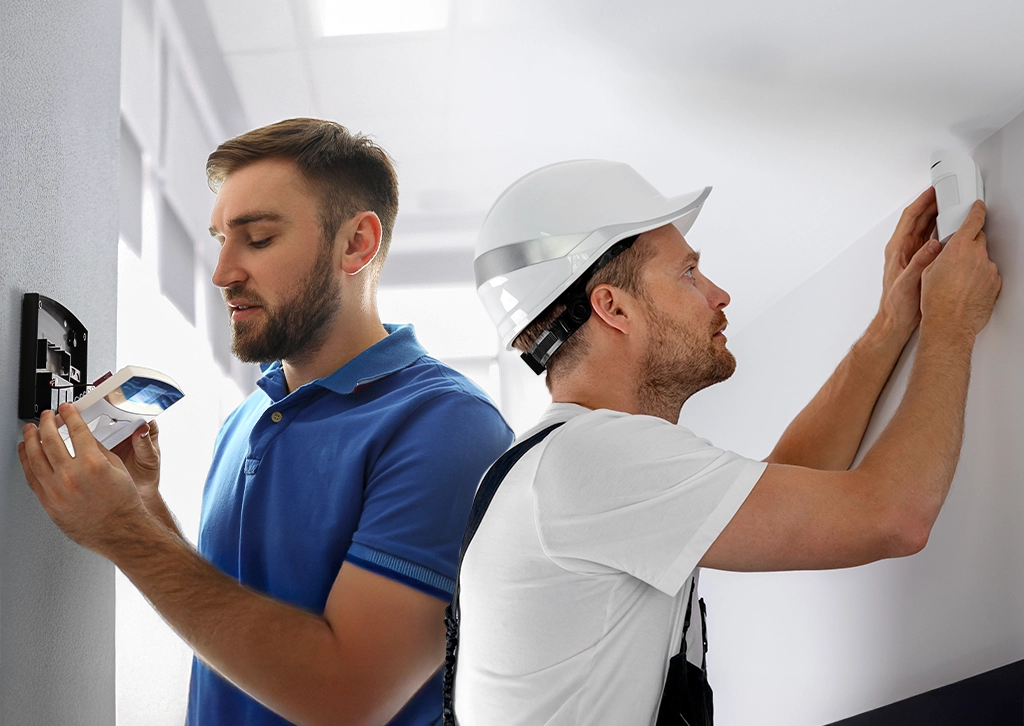Choosing between a DIY alarm kit and a professionally installed security system is more than a matter of budget. It affects your property’s reliability, insurance cover, and peace of mind. Yet, many providers gloss over these differences. This guide lays out the real trade-offs so you can make an informed decision that protects what matters most.
Cost vs Value: The Price You Pay and the Value You Get
Upfront Savings Can Be Misleading
DIY alarm kits often look appealing due to their lower price tags. A typical wireless kit from a high-street retailer might cost between £200 and £400. Compare that to a professionally installed intruder alarm system, which starts around £600 and can go much higher depending on the complexity and grade.
But initial costs are only part of the story. DIY systems rely on you for setup, maintenance, and troubleshooting. Hidden costs may include buying tools, expanding coverage with add-ons, and replacing components more often due to lower-grade parts.
Professional Systems Offer Predictable ROI
Professionally installed systems, like those provided by NSI Gold-accredited firms, come with robust warranties, service plans, and often long-term savings. Many offer remote monitoring and police response options. That makes them suitable not only for homeowners but also for landlords and businesses who need audit trails and incident reports.
Reliability and Performance: Can You Trust it in a Crisis?
DIY Can Be Hit-or-Miss
Most DIY systems are limited to Wi-Fi-only connectivity and basic motion sensors. In homes with thick walls, poor signal strength, or complex layouts, coverage can be patchy. False alarms are common, especially when pets or draughts trigger budget sensors.
Configuration errors are another risk. If you’re not a security expert, how do you know you’ve covered all entry points? What about tamper detection or secure comms protocols?
Professional Installers Engineer for Resilience
Professional systems are graded to BS EN 50131 standards, often with Grade 2 or Grade 3 capability, depending on the threat level. Installers conduct site-specific risk assessments, accounting for sightlines, vulnerabilities, and escape routes. Systems often feature dual-path signalling (e.g. GSM and IP), anti-masking sensors, and battery backups to mitigate power cuts or sabotage.
The difference is stark when it matters most: during a break-in.
Insurance and Compliance: The Hidden Cost of Getting It Wrong
Your Policy Might Have Fine Print
Here’s the insider truth: some insurers require systems to be installed and maintained by a certified professional. If you fit a DIY alarm and it fails during a break-in, you might find your claim rejected. Even where DIY is allowed, evidence of regular testing and fault logging is often demanded.
This is particularly important in higher-risk homes (e.g. rural properties or those with high-value contents) and commercial premises. You should always check your policy’s security clauses before deciding.
Professional Install = Compliance Certainty
Working with an NSI Gold or SSAIB-accredited provider ensures your system meets insurance-grade standards. You receive a certificate of conformity, proof of alarm maintenance, and direct support in case of faults or upgrades.
That’s not just about compliance. It can also lower your premiums.
Warranties, Support, and Peace of Mind
DIY Often Means You’re on Your Own
Most consumer alarm kits come with a basic 12-month warranty. If a sensor stops working or the app malfunctions, you’re reliant on customer service lines or forums. This is fine if you’re tech-savvy, but many users find troubleshooting time-consuming and stressful.
Professional Support Removes the Guesswork
Iris VBS systems come with 12-month warranty as standard, remote diagnostics, and optional 24/7 monitoring. If a device fails or a fault occurs, engineers can often resolve it remotely or via a scheduled visit. This matters more than ever as smart home integration grows more complex.
You don’t need to be an expert. You just need the right partner.
When Is DIY the Right Choice?
Despite the risks, DIY systems can be suitable for:
- Small flats with few entry points
- Temporary setups (e.g. short-term lets)
- Budget-conscious users comfortable with technology
Just be sure to:
- Read your insurance terms
- Document all installations
- Test regularly and log all faults
The Verdict: Convenience vs Confidence
DIY alarms can offer short-term convenience. But professional systems deliver long-term confidence, compliance, and coverage you can trust. Especially for businesses, landlords, and families who rely on their system to work when it matters.
Need advice on the best setup for your property? Iris VBS provides free site surveys across Oxfordshire, Berkshire, and the South East to help you make the right call.


